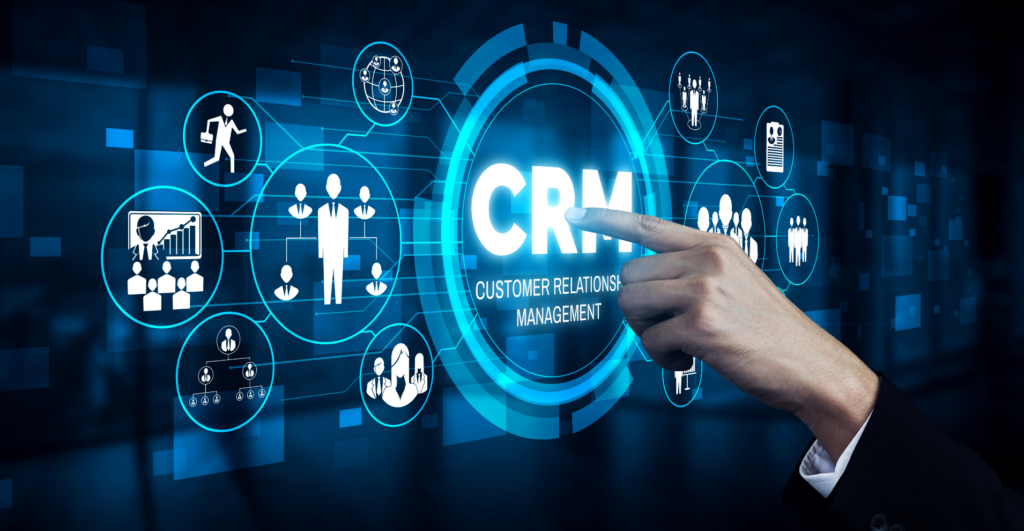The healthcare industry is experiencing a technological revolution, and customer relationship management (CRM) tools are taking center stage in reshaping patient engagement. With Salesforce and Epic leading the charge, healthcare organizations are leveraging CRM platforms to enhance patient experiences, streamline workflows, and improve care coordination. While both companies bring unique strengths to the table, their strategies highlight the diverse approaches to integrating CRM into healthcare.
The CRM Revolution in Healthcare
The concept of CRM in healthcare has evolved significantly since Salesforce entered the market in 2015. Traditionally associated with retail and hospitality, CRM tools now empower healthcare providers to offer personalized, patient-centric experiences. Features such as benefit verification, follow-up appointment booking, and tailored marketing campaigns help healthcare organizations deepen relationships with patients while optimizing operational efficiency.
Meanwhile, Epic’s Cheers CRM, introduced in 2022, has gained traction among its EHR customers. By providing robust integrations with its electronic health record (EHR) platform, Cheers enables call centers to access patient medical histories and simplifies the creation of targeted campaigns. This seamless connectivity appeals to health systems already using Epic for clinical documentation and care delivery.
Comparing Salesforce and Epic Cheers
Salesforce: The CRM Pioneer
Salesforce has built its healthcare CRM portfolio on the foundation of artificial intelligence (AI) and integration capabilities. Its tools allow providers to:
- Verify insurance benefits.
- Match patients with providers.
- Automate follow-up processes.
Salesforce emphasizes flexibility, offering robust solutions tailored to meet the unique needs of healthcare organizations. Amit Khanna, senior vice president and general manager of health at Salesforce, highlighted the company’s foresight: “In 2015, we knew CRM for healthcare was the right direction. The market has since validated that vision.”
Epic Cheers: Integration Advantage
Epic’s Cheers CRM leverages its EHR dominance to attract users. About half of Epic EHR customers have adopted Cheers for contact management, while a quarter use it for marketing campaigns. Its deep integration with Epic’s EHR reduces deployment time and enhances data accessibility for customer service representatives.
Sam Seering, a product manager at Epic, noted that Cheers addresses the complexity of integrating third-party CRMs with EHRs, offering a faster and more seamless solution for Epic users.
Healthcare Systems and CRM Adoption: Case Studies
Northwell Health
Northwell Health, New York’s largest healthcare system, is blending Salesforce and Epic’s strengths in a $1.2 billion transformation. By integrating Salesforce’s CRM with Epic’s EHR, Northwell aims to enhance patient tracking, automate MyChart messaging, and streamline referral management.
Northwell faced challenges in ensuring the systems worked harmoniously but remained committed to protecting patient data and creating a better user experience. Physicians and administrators alike supported the initiative, believing it would elevate patient care and operational efficiency.
Nebraska Medicine
Nebraska Medicine adopted Salesforce’s CRM in 2019, leveraging its marketing tools to personalize patient outreach. The system uses nonclinical data from Epic’s EHR to target specific groups, such as sending preventive care reminders to smokers about lung screenings.
This approach mirrors consumer expectations from industries like retail and airlines, offering tailored, empathetic interactions. “Patients expect health systems to know them and provide personal experiences,” said Alison Freemyer, manager of marketing operations.
Tampa General Hospital
Tampa General Hospital chose Epic Cheers in 2023 to improve care coordination and create a more customer-friendly experience. While it considered Salesforce, Epic’s lower cost and faster deployment made it the preferred option.
Epic Cheers allows customer service representatives to route patient information directly to clinical teams, enhancing efficiency. In the future, Tampa General plans to introduce automated features, such as predictive caller assistance, to further streamline patient interactions.
The Battle for CRM Supremacy
Why CRM is Critical in Healthcare
CRM tools are no longer optional for healthcare providers—they are essential for improving patient engagement and operational efficiency. From reducing denied claims to creating intelligent call centers, CRM platforms enable organizations to meet the demands of modern healthcare consumers.
Salesforce’s Strengths
Salesforce excels in flexibility and innovation, offering a suite of AI-enabled products that cater to diverse healthcare needs. Its appeal lies in its ability to replicate the personalized experiences patients encounter in other industries.
Epic’s Competitive Edge
Epic leverages its dominance in the EHR market to position Cheers as a natural extension of its ecosystem. Its seamless integration and quick deployment appeal to organizations already using Epic’s EHR platform.
Challenges in CRM Implementation
- Integration Complexity:
Health systems like Northwell spend significant time and resources ensuring their CRM integrates seamlessly with EHR platforms while safeguarding patient data. - Cost Considerations:
Smaller health systems may find Epic or Salesforce prohibitively expensive, prompting them to explore alternative vendors like Oracle. - Balancing Growth with Existing Patients:
Systems must prioritize the experiences of current patients before focusing on acquiring new ones, as highlighted by Tampa General’s leadership.
The Future of CRM in Healthcare
As healthcare organizations increasingly adopt CRM tools, the focus will shift toward maximizing their potential. Automation, AI-driven analytics, and deeper EHR integrations will drive innovation in patient care and operational efficiency.
Both Salesforce and Epic have distinct advantages, and the choice ultimately depends on an organization’s budget, goals, and existing technology infrastructure. Regardless of the vendor, the rise of CRM reflects a broader shift toward patient-centric, data-driven healthcare delivery.
Healthcare systems that embrace CRM will not only enhance patient experiences but also position themselves as leaders in an increasingly competitive market.


